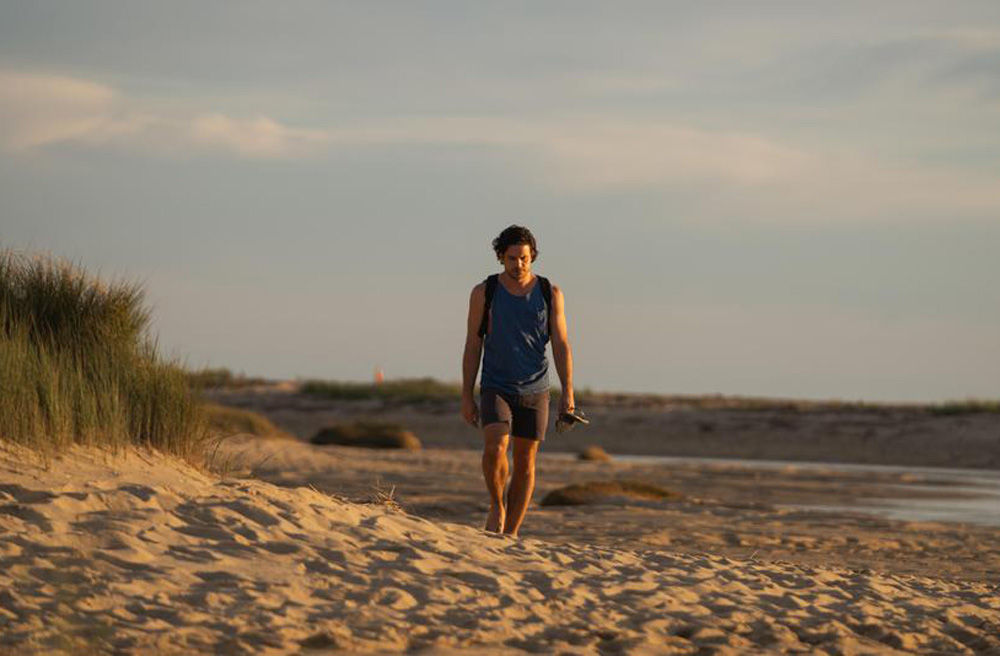Lourenço (Marco Pigossi) wasn’t supposed to be in paradise for this long when we first meet him in “High Tide,” idling away his time off the Eastern seaboard in Provincetown with long swims where floating in the sea can look more like treading water. He need not worry about a roof over his head when Scott (Bill Irwin), the kindly local who took him into his guest house when he arrived with his boyfriend makes it clear he’s in no rush for rent, and with the boyfriend now long gone, the Brazilian is stranded without much of a sense of purpose, unable to find work as an accountant with his shaky immigration status as he once was in his birth country and having no real routine when the odd jobs he takes can occur at a moment’s notice and leave mounds of free time to spend at the beach.
From the earliest moments of “High Tide,” writer/director Marco Calvani wants you to take notice almost immediately of Lourenço’s impeccable physique, a model of masculinity that erodes the more time he spends around the water. It’s an intriguing dichotomy that keeps the drama interesting even when Calvani is bound to hit more familiar notes as Lourenço frets about his precarious citizenship and what the future holds as he tries to mend a broken heart. The answer to the latter appears in front of him a little too soon for his liking when he shows up one day to his usual swimming spot and finds Maurice (James Bland), along with his friends BJ (Karl Gregory), Crystal (Mya Taylor) and Leslie (Todd Flaherty). Although Maurice tells him to watch out for sharks, he swoops in for a kill pretty quickly when it comes to seducing Lourenço by suavely introducing him to a secret lagoon, though it comes with a catch that he’s departing Provincetown soon.
They clearly make an attractive pair, but Lourenço is frustratingly tentative for reasons that go beyond committing to a new relationship so immediately after an old one and “High Tide” is able to hone in on how what the world sees is significantly different than how its lead sees himself, far more sensitive than his carefree demeanor might suggest. Your mileage may vary when it comes to Calvani’s methodology, reflecting the depth of Lourenço’s conversations with Maurice through more and more intense closeups that come to obscure the physicality of its subjects, a bold stylistic gambit that finds itself at odds with the airy aesthetic of the rest of the film. Yet the idea of getting beneath the skin is a strong one when Lourenço is beholden to how he presents himself, ultimately confined by his handsomeness when he lacks self-confidence and unable to honestly confide in the one person he trusts fully – his mother back in Brazil – when he believes the only reason she let him leave was telling her that he’d gotten into Harvard.
Being genuine comes more naturally to Calvani, who is obviously telling a story close to his heart and is driven by instincts that make the film personal separate from any of its narrative details. If anything, “High Tide” might benefit from being a bit more experimental formally, based on the limited scenes that the director lets something raw pierce the idyllic veneer of a life he’s set up for Lourenço, but a sense that he might be testing the boundaries in his first feature as his character seems apropos, yielding a soulful study of a person who fears he’s become a permanent guest in someone else’s home.
“High Tide” does not yet have U.S. distribution.




